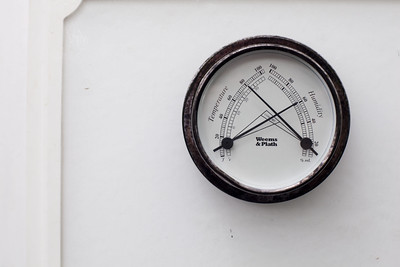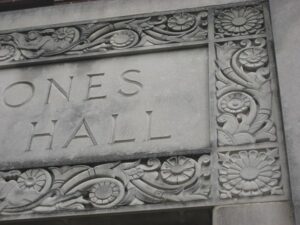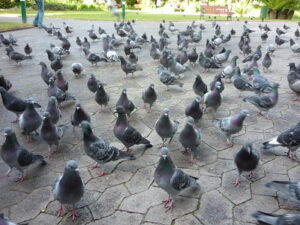Yesterday, I wrote about the importance of proper humidification in buildings during the heating season. Increased humidity impairs transmission of influenza, rhinoviruses and coronaviruses by making it harder for these viruses to circulate. Decreased humidity is a natural consequence of operating a heating system. Dry air allows virus-containing airborne droplets to circulate longer. It also absorbs moisture from human respiratory tracts, allowing viruses to access a human host more easily.
Temperature also plays a role in virus survival. As the temperature rises, common respiratory viruses weaken. Colder ambient temperatures help viruses survive longer. Adjusting building temperature and humidity levels upward isn’t a magic bullet, but it can reduce virus transmission rates by 20% or more.
The connection between relative humidity and respiratory virus transmission may justify upgrades to the campus air handling systems. In the Capital Outlay Report 2021-2025, WCC has identified installation or replacement of humidification units in the BEB, GM and SC Buildings. It appears the SC Building does not currently have a humidification system. Given the full weekday occupancy of the building, then adding moisture to the air there should become a high priority.
A new Harvard University model correlates seasonal weather conditions with coronavirus transmission. Using Washtenaw County data, the model suggests that transmission rates will peak in early November 2020 and early January 2021.
The predicted peaks give good reason to accelerate the start of the Fall 2020 semester and delay the start of the Winter semester. This approach would see certain 12-week classes start in early August. Winter semester would start in late January or early February. If WCC cannot modify its air handlers effectively, then closing campus at Thanksgiving could potentially reduce local COVID-19 transmission. It may also avoid having to close campus abruptly mid-semester.
Photo Credit: Joey Rozier, via Flickr
















